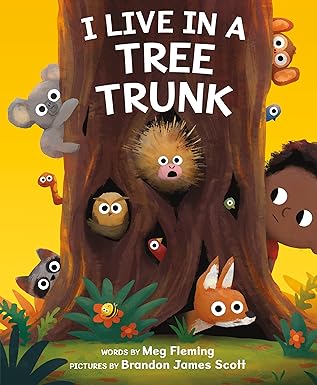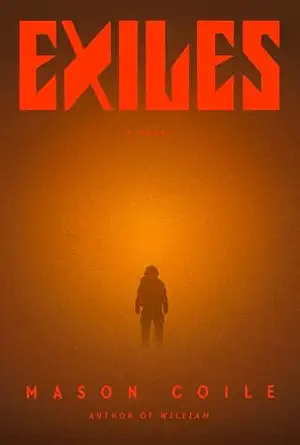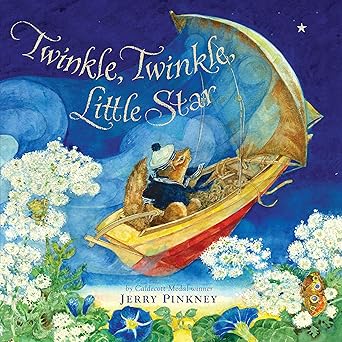This is a cute book exploring animal homes. Students will delight in guessing the animals that peer out of their dwellings, such as a gopher’s mound, a sea otter’s bay, an owl’s nest, etc.... Some animals, like birds and gorillas, share the same name for their dwelling (nest)! Among the animals featured in this book are: farm dwellers (sheep, donkey, horse, llama, chicken, pig, goat), tree dwellers (monkey, sloth, koala, snake), and den dwellers (porcupine, raccoon, fox, skunk, opossum). For ages 4-8.
Monday, November 24, 2025
Monday, November 17, 2025
Poems & Prayers by Matthew McConaughey
In his new book Poems & Prayers, the actor Matthew McConaughey offers up some intimate thoughts in both prose and verse, divided into themed sections. I found this work to be a mixed bag. Some of the poems seem contrived, while others are beautiful, simple, and insightful. The pages of prose often make for thoughtful reading. Overall, the book cries out for the guidance of a sharp editor.
In some poems the wordplay is quite clever, while in others it's overwrought. In a poem called "Daymares" - about small, almost unnoticeable daily habits we have that wound those close to us - McConaughey remixes a common expression in the line, "the pets that we peeve." This made me laugh; after all, who hasn't left a beloved pet feeling that way? This is McConaughey at his most witty.
There's also wordplay that reads more like word salad: "I take a scroll down the Rolodex of my memory's lane." You really have to work to wrap your mind around this awkward line. It sounds to me - who spent several years in an earlier career creating and evaluating therapeutic programs for nursing home residents - very much like something a person with dementia might say.
Some poems are so packed with metaphor and cryptic symbolism that the meaning is lost on me. The poems "Fallen Leaves" and "The Mess I Made" are examples. Removing a few stanzas would make these poems more polished and coherent. A poem called "Capably Able" is full of clever rhymes and imagery, but there is so much going on in it that I can't make sense of the whole.
Then there are the prayers, most of them written in verse form. McConaughey expresses a traditional Christian religiosity, in which he offers prayers to a father figure, examining his own flaws and asking forgiveness and redemption. These felt a bit exhibitionist to me, yet his discussion of why we pray is perceptive.
What I found much more interesting in both his prose and his poetry is the expression of another kind of spirituality he has but never labels as such: a distinct sense of the yin and yang in the operations of the universe. In a reflection on page 75 he wrote: "Consequences go both ways. With every decision, choice, action, there will be a give with the take, a credit with the debit...something good and something bad." On another page: "If you make a profit in one place, you're gonna get a debt in another."
Elsewhere, a yin/yang sensibility is expressed by an entire poem called "Back to the Future," every line a reference to complementary opposites. On another page is an untitled, elegant little poem about doers and dreamers; they have opposing qualities and the world needs both types of people. McConaughey's book highlights his belief in and practice of Christianity while not overtly acknowledging this more intuitive side of his view of life.
McConaughey's prose feels less forced, and in places is just as lyrical as his best poems here while summing up some worthy insights. He believes in the necessity of difficulties in life in order to mature. He believes in post traumatic growth for those willing to take a hard and critical look at themselves. He is big on personal accountability.
Crown Publishing slipped up with this publication, though; the book needs tighter editing. There are grammatical errors throughout - apostrophes where they shouldn't be, and redundancy of both words and thoughts within single sentences in several places, as well as excess in some of the poems. Correcting these errors and trimming away some of the confusing lyricism would result in a more polished book.
- Marianne W.
Monday, November 10, 2025
Exiles by Andrew Pyper (writing as Mason Coile)
"I read this in 24 hours," was part of the recommendation I received from a library visitor the other day. Mason Coile's other horror novel about artificial intelligence (W1LL1AM) has been on my list for a few months, but her enthusiasm about Exiles pushed this to the front of the list.
Monday, November 3, 2025
Twinkle Twinkle, Little Star ill. by Jerry Pinkney
This is a beautiful rendition of the beloved children’s song “Twinkle Twinkle, Little Star” illustrated by Caldecott Medal winner Jerry Pinkney. In this story, a curious chipmunk leaves her nest to explore the world around her. Along the way, she discovers a star-like image in a twirling white seed pod, the blossoms of a tree, a spider's web, and the glow of fireflies. As the day closes the chipmunk climbs into a robin’s nest and later into a sail boat in a dreamlike quest to reach the stars. Eventually she returns to her home on the back of a white swan.
-Julie B.




